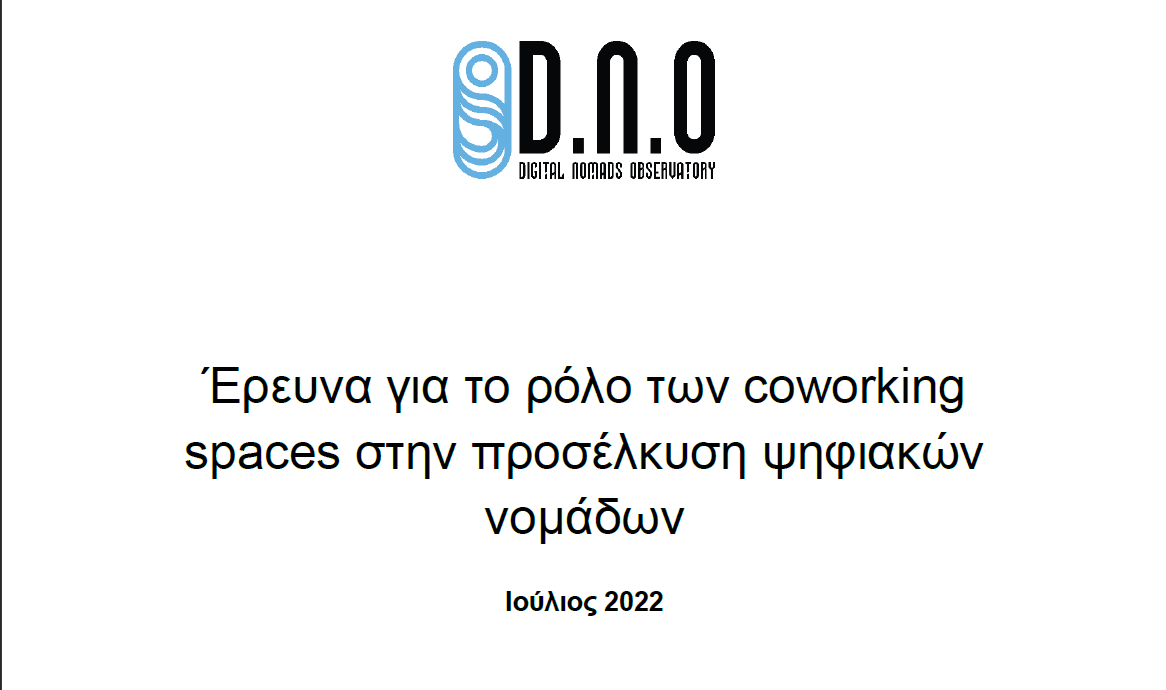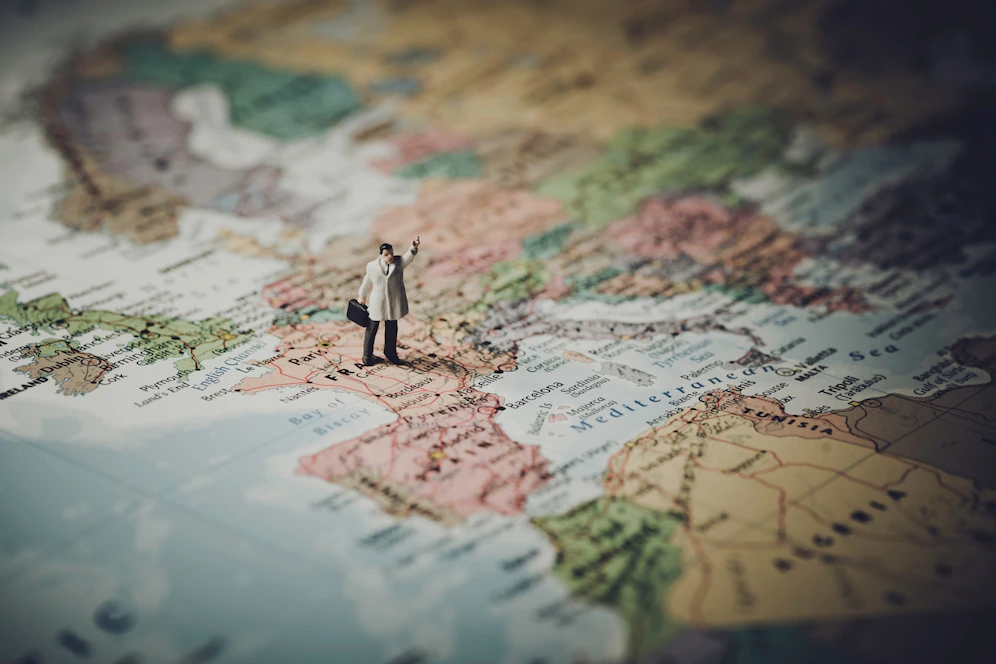
“Digital Nomad Visas”: A win-win situation for everyone
June 28, 2022
Study about the digital nomads and coworking spaces in Greece
July 18, 2022What do an almost 60-year-old American writer, a former university professor who enjoys kayaking, an international business advisor with a daughter named “Flash,” and a British 44-year-old who loves Assassin’s Creed Odyssey have in common?
They have all chosen to travel the world while working remotely and live a nomadic lifestyle.
Interviews with digital nomads provide insight into this alternative way of life and could serve as a guide for anyone interested in pursuing a nomadic lifestyle. We, while trying to create a more complete image of digital nomads’ mindset, searched for answers to the following question:
How do they decide on their next stop?

Living in a Covid world for two years has undoubtedly influenced some of the criteria, digital nomads take into consideration when choosing their destination. “Where will let you in, and what are the covid restrictions? Before that, though it may be other opportunities I’ve heard about or knowing people in certain countries.” Michael, a writer from the USA mentioned, while Mark from England said that his choice was inspired by a game he used to play that “fully mapped out ancient Greece, including the island of Naxos, where I am now”. He fell in love with the main character of the game called Kassandra. He completed the game after about 100 hours, then put another 100 hours in because he didn’t want to leave her – nor Greece.
The length of stay in a location varies greatly from case to case, with Christina, a kayak enthusiast, planning her move three months in advance but being open to changing her plans if she believes a place has more stories to provide and corners to be explored.
Expectedly, immigration policies, in general, influence Digital Nomads’ decisions, with Brexit making the life of the British more challenging “…wherever possible we want to ensure any work we do is legal in regards to work visas and taxes. Brexit has made that harder since we are no longer EU citizens.” While the American remote workers are in a more fortuitous position: “As a US Passport holder, I can enter most countries for up to 90 days without needing to apply for a visa or permit” Christina mentioned, who sold everything she owned in May 2019 and started traveling abroad full time, and many aligned with her perspective.
While, language isn’t a big deal for expats since they can always get by “If I’m in a tourist area, there are enough people speaking English.” said Christina, the expected cost of living it is, in determining the destination country. To balance their expenses, some of the digital nomads choose to stay in very expensive countries for a shorter period of time or alternate between more and less expensive places; They can move to a country with a higher cost of living after staying in one with a lower cost for a while, and it will balance out by the end of the year. The key here is to create an annual budget and then stick to it.
Safety had an impact on Jacob’s decision, an international business advisor from Australia who started testing the full digital nomad life back in 2019 after his daughter was born “So far we have focused on countries we feel safe and familiar with, which has meant Europe and some other Commonwealth / English Speaking countries.”
Safety can also be part of the beauty by emphasizing the purity and authenticity of the destination and the local community: “The Greek people are amazing… the keys are in the motorbikes. And they’re just left there with the keys. And it’s like, that feels good. That’s safe. You know when you’re with good people when they can leave their keys in their cars and motorbikes overnight. So wonderful…” said Mark who was located in Naxos at the time of our talk.

Weather is also an important factor to take into account. Digital nomads do tend to stick to warmer climates but will occasionally spend time somewhere colder. Warmer places are preferred because they allow more freedom to explore the area, as Christina said: “I do not zig-zag across the globe. I have been hanging around Central and South America, and the Caribbean for now. Then in March 2022, I will take a cruise from Brazil to Spain to relocate to Europe. I plan to stay on that side of the world for several years.” However, it is not only the weather that has an impact, but also the season. When discussing his stay in Greece, Mark stated that he prefers places where there are few tourists; According to him, if someone wants to become a digital nomad on a Greek island, autumn is an ideal time because the weather is still great but the places aren’t as crowded, so “you can experience the real rive of the place rather than the crazy touristic one.”
After delving into digital nomads’ mindset one might realize that a driving factor for choosing a place as their home is not only the commodities that accompany it but rather the people and the opportunity of being part of their routine:
“But I don’t travel the world to hang out with people like me, so it’s nice to communicate with locals – and there are few joys greater than the local café owner who remembers my order and is happy to chat with my broken attempts at the local language, or meeting someone randomly and then being invited to join their friends for a night out,” Jacob mentioned, while Mark, who has lived in Thailand for 13 years and now enjoys his time on Naxos, emphasized that locals do not recognize that “money is being left on the table” as the British say, and that they should take advantage of the good fortune of living in a place that can provide such unique experiences:
“I came here to be woken up at 6 am by the stupid chicken and the barking dog because you know I’m going to go get some food for that dog. I’m going to make friends and I will never forget those experiences. And (locals should) understand that people like me and so many likely me, this is the experiences we want.”
Ultimately, one could argue that at the heart of a digital nomad’s philosophy there is a hunger for the unknown: They are craving new experiences, perspectives, and stories and countries like Greece should focus more on how to provide a 360° experience of Greek reality.
Written by Katerina Sachinoglou





